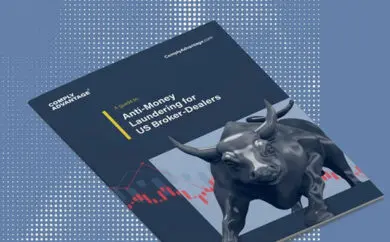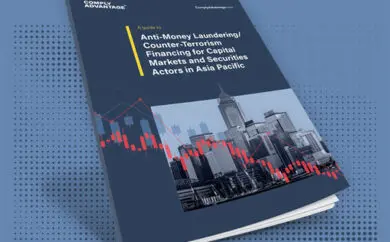
The fourth Financial Action Task Force (FATF) plenary under the two-year Singapore Presidency of T. Raja Kumar took place at the FATF headquarters in Paris on October 25-27, 2023. We’ve summarized the key developments – read on or click below […]

The fourth Financial Action Task Force (FATF) plenary under the two-year Singapore Presidency of T. Raja Kumar took place at the FATF headquarters in Paris on October 25-27, 2023. We’ve summarized the key developments – read on or click below […]

Atlanticus is a technology company that enables banks, retailers, and healthcare providers to offer more inclusive financial services including loans and credit cards. A core part of Atlanticus’ business portfolio is the two credit card brands it supports, Aspire and […]

The US real estate sector is one of the largest in the world, with an estimated value of $113.6 trillion in 2023. As such, its unsurprising that US authorities have expressed concerns about the role of illicit finance in high-end […]

Over the last decade, US authorities have expressed concerns about the role played by illicit finance in high-end residential purchases. International bodies such as the Financial Action Task Force (FATF) have also expressed concern. In particular, FATF highlighted real estate agents’ lack of regulatory coverage in the Bank Secrecy Act (BSA), the country’s main AML/CFT legislation.

An investment company aiming to help everyone invest simply and affordably, Freetrade partnered with ComplyAdvantage to conduct ongoing customer screening. The firm is authorized by the UK’s Financial Conduct Authority (FCA) and the Swedish Financial Supervisory Authority (FSA), and its […]

Credit unions’ operations put them in a similar financial crime risk category as banks. It is therefore of utmost importance that these firms fully understand their risks and associated obligations for anti-money laundering and counter-terrorist financing (AML/CFT) under federal law. […]

Learn more by downloading your copy of the Guide to Anti-Money Laundering for US Broker Dealers

The Capital Markets and Securities sector faces challenges, including banking contagion and unstable market conditions.

Watch this webinar to learn how you can grow and scale your compliance program with limited resources and within your current budget.

From navigating regulatory complexities to coming up against fierce competition with limited financial resources, early-stage fintechs face an array of challenges. And yet, despite these hurdles, startups play a crucial role in improving the fintech ecosystem with their disruptive ideas […]

If you’ve found this guide, there’s a good chance you’re looking for a payment screening solution that: Accurately detects risks and explains why alerts were generated. Integrates across your compliance tech stack. Provides up-to-date sanctions and politically exposed person (PEP) […]